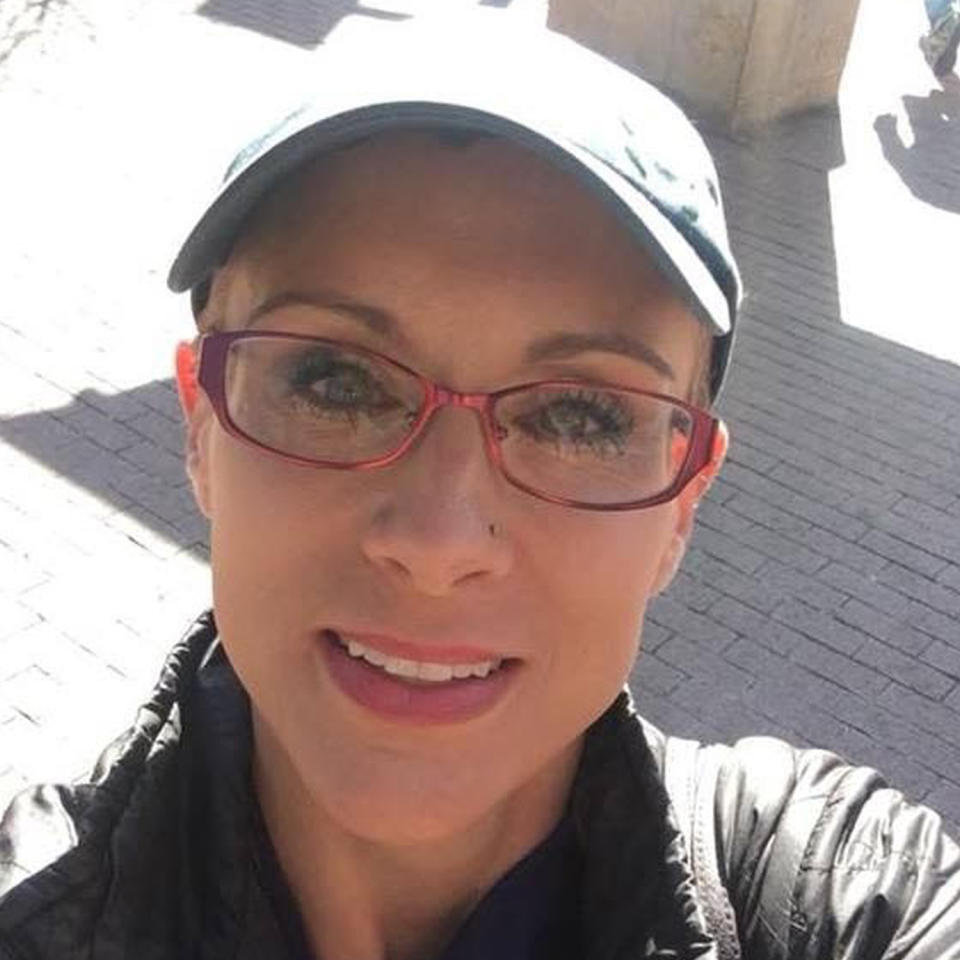'I thought my life was over': What it’s like to be diagnosed with a chronic illness at 19 years old

When you’re a teenager, it’s easy to write off weird health symptoms as no big deal. That’s what happened to Chantelle Hobgood when she first started experiencing symptoms of multiple sclerosis at 18.
“I woke up one day and just had numbness,” she tells Yahoo Lifestyle. “I was numb and tingly in my lower extremities, similar to when your leg goes to sleep. But it was completely out of nowhere.”
Hobgood says she “didn’t put much thought into it,” and that when she did mention it to people, they suggested her symptoms were due to a pinched nerve. She eventually visited a chiropractor, who said the same thing.
But her symptoms worsened over the next few weeks. “That numbness magnified 100-fold, it seemed,” Hobgood says. “I couldn’t feel anything from my breasts downward. I could still walk, but it was difficult.” Hobgood says she couldn’t feel her hands, and they kept closing. “I couldn’t use my hands. I couldn’t even tie my shoes,” she says. “I was also in pain.”

Hobgood says she eventually realized something was seriously wrong. “This was way more than a pinched nerve … it was so aggressive,” she says. She went back to the chiropractor, who simply said, ‘I don’t know what’s going on,’” she recalls.
Eventually, Hobgood went to see her primary care physician and says “that’s when things got really scary.” Her doctor looked at her “strangely,” she says, and suggested that she might have MS, an autoimmune disease in which the body’s immune system attacks its own tissues. “I had no idea what MS was,” she says. “I was completely freaked out.”
Her doctor recommended that she see a neurologist to undergo an MRI (the preferred method of diagnosing MS, according to the National Multiple Sclerosis Society). Hobgood didn’t have health insurance at the time, but she did the MRI, and says she had to wait “forever” to get the results. Finally, she was diagnosed soon after she turned 19.
‘I broke down into tears’
Hobgood says her reaction was simple: “I broke down into tears.” She had already researched MS and was worried about what her diagnosis would mean for her future. “I thought my life was over,” she says. “I was worried that I was going to be in a wheelchair in six months. The rug was taken out from under me. I was young and had my whole life ahead of me. I was so scared.”
Hobgood didn’t undergo any treatment after she was first diagnosed because she was worried about the cost with no health insurance. “I finally got a job and got some health insurance, but at the point, my MS was on fire,” she recalls.
She started having a complication of MS known as optic neuritis, which happens when the optic nerve (which transmits impulses to the brain from the eye) becomes inflamed. “I had a lot of pain in my eye and it started to look like I was trying to see through clouded glass,” she says. “A doctor I saw at a clinic told me to go to the ER immediately because I could go blind.”

Doctors managed to save Hobgood’s vision, and she eventually went on various medications to help control her condition. Still, she struggled with fatigue — something that’s still an issue for her — along with pain, cognitive issues, and flare-ups that interfered with her ability to walk. She’s now 45 and says these things can still be an issue for her. “My left side doesn’t work very well, and I have difficulty writing at times,” she says.
“MS takes over your life,” Hobgood says. “As a young person, I felt very much a victim to the entire disease and that I had very little control over what was happening with my body.” But eventually, she says she changed her way of looking at her disease, noting, “I was forced to either succumb to its hardships or learn how to work with it.”
Now, she focuses on living a healthy lifestyle and keeping her stress levels low. She had to stop working in 2003, went back to work for a few years, and then had to stop again in 2012 due to health issues. Despite her limitations, Hobgood says she “doesn’t feel like I’m a victim to MS,” calling her disease, “the greatest thing that’s ever happened to me.”
“My life would have been very different without it,” she says. “I would have been far more self-absorbed. Having MS made me stop and think about my life.”
Overall, Hobgood says she’s “not only surviving, but thriving” with her condition. “Yes, it is a daily issue and some days are better than others, but I choose not to allow it to be awful,” she says.
Read more from Yahoo Lifestyle:
What it’s like to be the parent of a child with a chronic illness: ‘Every day feels like a struggle’
Woman shares brutally honest fears on dating with a chronic illness: ‘Nobody is going to love me’
Follow us on Instagram, Facebook, and Twitter for nonstop inspiration delivered fresh to your feed, every day.
